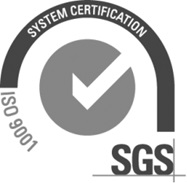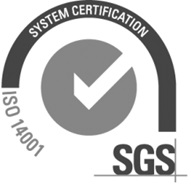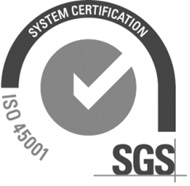Social Network Post Leads To Dying City
July 18, 2018

Google’ Asbestos’ this month and you-you’ll find a plethora of high profile news stories from around the globe, mainly tragic but with one that starts with a darkly comic twist that leads to one of the most terrible of all in a dying city.
On what initially seems lighter side July saw Russian mining firm Uralasbest, one of the world’s largest producers and sellers of Asbestos, brand pallets of its product with a seal of US President Donald Trump’s face, along with the words “Approved by Donald Trump, 45th president of the United States”.
The tongue in cheek move by the Russian producer followed the decision of the US Environmental Protection Agency to stop short of an outright ban on new asbestos products. Unlike the UK, that introduced an outright ban in 1999, the US The EPA has not and presently will not introduce a full ban saying it “would evaluate new uses of asbestos”.
Unsurprisingly environmental groups have been quick to criticise the Agency for not banning the use of Asbestos entirely, on public health grounds.
In a Facebook post, Uralasbest showed off images of its Trump-branded chrysotile asbestos, with an accompanying post stating: “Donald is on our side!”
The message on Facebook goes on to thank the US President for his supporting the recently departed head of the US EPA who made the declaration before his leaving that the Agency would “no longer deal with matters related to side effects potentially caused by asbestos”.
The Russian company went on to point out that “Trump called asbestos “100% safe after application”, a reference to a quote made by Trump in his 1997 book The Art of the Comeback.
Somewhat ironically Asbest, home of Uralasbest’s mining city, nearly 1000 miles north of Moscow in the Ural mountains, was at one point, due to its high degree of cancer and other asbestos-related health problems, referred to as the “Dying City”.
The mine in the town of 70,000 people produces nearly half a million metric tons of Asbestos every year, and it is estimated the asbestos industry employs 400,000 people in the area, and the production process generates $800 million annually.
Some studies put the cancer rates in Asbest at 20-40% higher than other parts of the Svedlovsk region in Russia, and the area produces Asbestos for Russian domestic use and export to developing countries that have more lax regulations surrounding Asbestos than the UK & Europe.
In Russia, the industry insists that the chrysotile asbestos mined at Asbest is safe although observers including a branch of the World Health Organization, namely The International Agency for Research on Cancer, is using the location in a multiyear study of Asbestos on workers.
Reports from observers state that in Asbest when the wind picks up, the city is often coated in asbestos dust. As a result of the significant number of people under exposure to Asbestos dust in the city, the researchers from the Agency are using the location to determine whether Asbestos causes ailments beyond mesothelioma (lung cancer), including ovarian cancer.



 All News
All News









